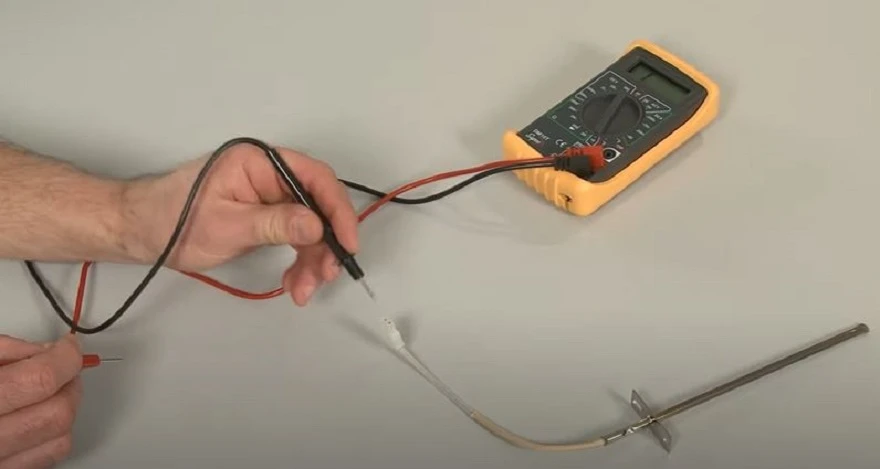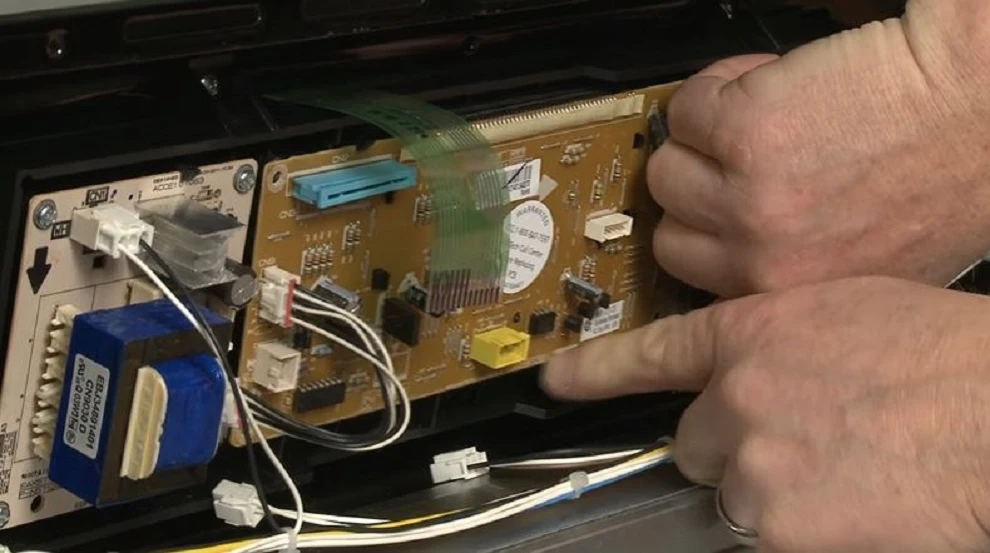6 Common Causes of a Gas Oven Won’t Turn Off
If your gas oven won’t turn off, it’s likely due to a malfunctioning thermostat or a faulty igniter. These components are crucial for the proper operation of your oven, and their failure can lead to safety hazards.
A gas oven that refuses to shut off poses significant risks, from gas leaks to potential fires. The thermostat, which regulates the oven’s temperature, and the igniter, responsible for lighting the gas, are often at the heart of the problem. When either of these parts malfunctions, it can prevent the oven from turning off.
Immediate steps should include checking the thermostat settings and inspecting the igniter for signs of wear or damage. If these initial troubleshooting steps do not resolve the issue, turning off the gas supply and ventilating the area are critical safety precautions to prevent gas buildup and potential hazards.
Persistent issues with a gas oven that won’t shut off should prompt seeking professional help, especially for those unfamiliar with gas appliances. The complexities of gas oven repair require expertise to ensure safety and proper functionality.
Note: DIY attempts to fix a gas oven can be dangerous and may exacerbate the problem. Always prioritize safety and professional advice when dealing with gas appliances.

How to Turn Off Gas Oven?
Turning off a gas oven properly is essential for kitchen safety and to ensure the longevity of your appliance. This process requires attentiveness and, in some cases, basic tools like a wrench for dealing with the gas line, although most of the time, no tools are needed. The following steps outline the correct procedure to ensure your gas oven is turned off safely.
Step 1: Use the Oven’s Control Knob
The first and most straightforward step is to turn the oven off using the control knob. This knob is usually located on the front panel of the oven. Rotate the knob to the “off” position. If the knob is stuck or you’re unsure if it’s correctly set, do not force it; proceed to the next steps for additional measures.
Step 2: Check the Oven’s Pilot Light
For older gas ovens with a pilot light, ensure that the pilot light is extinguished when the oven is not in use. If the pilot light remains lit, it could indicate that gas is still flowing to the oven. If you’re unfamiliar with how to check or extinguish the pilot light safely, refer to the oven’s manual or consult a professional.
Step 3: Turn Off the Gas Supply
If the oven does not turn off using the control knob, the next step is to shut off the gas supply. Locate the gas shut-off valve, which is typically behind the oven or in a lower cabinet near the appliance. Turn the valve clockwise to the “off” position. This step immediately stops the flow of gas to the oven, preventing any potential gas leakage.
Step 4: Ventilate the Kitchen
After turning off the gas supply, open windows or use an exhaust fan to ventilate the kitchen. This step is crucial if you suspect a gas leak or if there was an unusual smell of gas when trying to turn off the oven. Ventilation helps to disperse any accumulated gas, reducing the risk of inhalation or a potential gas explosion.
Step 5: Inspect and Service the Oven
Once the oven and gas supply are turned off, and the area is ventilated, inspect the oven for signs of wear, damage, or malfunction. This inspection can identify issues like a faulty control knob, a stuck gas valve, or problems with the igniter. For any repairs or maintenance, consider consulting a professional technician who can safely address and resolve the issue.
Step 6: Regular Maintenance Checks
Regularly check the oven’s functionality, including the condition of the control knobs, the pilot light (for older models), and the gas shut-off valve. Regular maintenance ensures that the oven operates safely and efficiently, reducing the chances of encountering issues with turning the oven off in the future.
Read More: Gas Oven is Off But Still Heating: Quick Fixes!
Common Causes of a Gas Oven That Won’t Turn Off
A gas oven that won’t turn off can pose significant safety risks. Here are six common reasons this might happen, along with solutions to address each issue.
1. Faulty Thermostat
The thermostat controls the oven’s temperature and signals the oven to turn off when the desired temperature is reached. If it malfunctions, it may fail to send this signal, leaving the oven on. The solution involves testing the thermostat with a multimeter to check for continuity. If the thermostat is defective, replacing it is necessary. Ensure the new thermostat matches the oven’s specifications for a seamless fix.
2. Broken Igniter
An igniter heats up and lights the gas in the oven. Over time, igniters can wear out or break, leading to the oven not turning off because it continues to try and light the gas. To fix this, first, observe if the igniter glows without lighting the gas — this indicates it’s too weak and needs replacement. Ensure the power is off before attempting to replace the igniter to avoid electrical hazards.
3. Stuck Oven Control Knob
Dirt, grease, or wear can cause the oven control knob to stick, preventing the oven from turning off. Cleaning around the knob can sometimes free it, but if the knob is damaged or the mechanism inside is faulty, it may need replacement. Detaching the knob and cleaning the area with a degreaser can help, but if the problem persists, consider replacing the knob or consulting a professional.
4. Faulty Gas Valve
The gas valve controls the flow of gas to the oven. If it doesn’t close properly, gas will continue to flow, keeping the oven on. This is a more complex issue that typically requires a professional technician. They can test the valve for leakage and replace it if necessary. It’s crucial not to attempt repairs on gas components without proper training and tools.
5. Malfunctioning Control Board
The control board is the brain of the oven, managing all its functions. If it malfunctions, it may incorrectly signal the oven to stay on. Diagnosing a control board issue involves checking for error codes or irregularities in oven behavior. Replacing a control board is a delicate process and should be done by a professional to ensure the oven’s safety and functionality.

6. Wiring Issues
Faulty or damaged wiring can disrupt the signals within the oven, causing it to remain on. Inspect the oven’s wiring for any visible signs of damage, wear, or loose connections. This task should be performed with the oven unplugged and, due to the risk of electric shock, might best be left to a professional. Repairing or replacing damaged wires can resolve the issue and restore normal oven operation.
Proactive Oven Care
Regular Cleaning and Inspection
Maintaining a gas oven involves routine cleaning and inspection to ensure its efficient and safe operation. Accumulated grease and food particles can obstruct gas flow and affect the oven’s functionality. Regularly wiping down the interior and removing debris from burners and igniters keeps the pathway clear for gas and prevents malfunctions.
Scheduled Professional Check-ups
Enlisting the help of a certified technician for an annual inspection can catch issues before they escalate. These professionals can assess the condition of critical components like the thermostat, igniter, and gas valve, ensuring they’re in working order. This preventive measure can save you from unexpected breakdowns and costly repairs.
Gas Leak Awareness
Being vigilant about gas leaks is vital. A distinctive sulfur-like smell or a hissing sound near the oven can indicate a leak. Installing a carbon monoxide detector near the kitchen can also alert you to dangerous gas levels, providing an extra layer of protection.
Educate Household Members
Ensuring that all household members know how to turn off the gas oven and what steps to take in an emergency can prevent accidents. This includes familiarizing them with the location of the gas shut-off valve and instructing them on proper ventilation practices.
Invest in Quality Parts
Using high-quality replacement parts during repairs extends the lifespan of your gas oven. Opting for cheaper alternatives might save money initially but can lead to more frequent failures and safety risks.
FAQs
Can a Power Outage Cause My Gas Oven to Stay On?
Unexpectedly, power outages can indeed affect gas ovens, especially those with electronic control panels. In the absence of electricity, these control systems may fail to signal the oven to turn off.
Once power is restored, resetting the oven by unplugging it for a few minutes then reconnecting can often resolve this issue. If the problem persists, it may indicate a deeper electrical issue within the oven that requires professional attention.
Is It Safe to Use My Oven If It Occasionally Fails to Turn Off?
Using an oven that intermittently fails to turn off poses significant safety risks, including gas leaks and fire hazards. This inconsistency often points to a malfunctioning component, such as the thermostat or control board.
It’s essential to address this issue immediately by seeking professional repair services to ensure the appliance operates safely and reliably.
Can Regular Baking Soda and Vinegar Cleaning Affect My Oven’s Functionality?
While baking soda and vinegar are touted for their natural cleaning abilities, they’re unlikely to impair your oven’s functionality if used correctly. However, ensure that these substances do not clog gas outlets or interfere with the igniter.
Thoroughly rinsing and drying any cleaned areas can prevent residue build-up, ensuring the oven’s optimal performance.
What Should I Do If Smelling Gas After Attempting to Turn Off the Oven?
Smelling gas after attempting to turn off the oven is a clear indicator of a gas leak, which could be due to a failure in completely shutting off the gas valve or a leak in the oven’s system.
Immediately turn off the gas supply valve, ventilate the area, and avoid using any electrical devices or open flames. Contact emergency services or a gas technician to inspect and repair the leak safely.
How Often Should Professional Inspections Be Scheduled for Gas Ovens?
Scheduling professional inspections annually is recommended to ensure the gas oven’s safety and efficiency. These check-ups can identify wear and tear, faulty components, and other issues that might not be immediately apparent to the user. Regular maintenance can prevent sudden failures, including issues related to the oven not turning off, and extend the appliance’s lifespan.
To see our latest posts Click Here